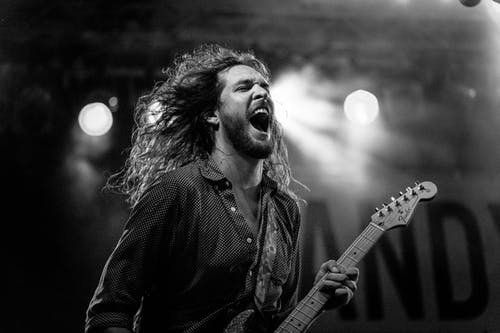HELPING AN ADDICTED MUSICIAN
If you hear of a musician who is addicted, it does not often end well. The reason for this is not far-fetched. Musicians are individuals who are very creative and talented.
They often aim perfection when it comes to writing and delivering great songs. They work with this drive that a good number of people do not exhibit when it comes to their peculiar career path.
However, this same drive they have is often what makes them addicted. The sad part is, when musicians get addicted, it becomes very difficult to them to break free.
People who are exceptionally talented and creatively-inclined are very susceptible to being addicted. Individuals like this would seek ways to fuel their creativity and they often end up addicted.
One of the reasons why musicians get addicted is because of poor stage management and fright. It is not an easy task facing the crowd to perform.

For those who try to avoid large crowds, they still end up being invited to perform at shows containing large gatherings of people. Hence, to help themselves combat this stage fright, the musicians help themselves by taking substances.
At first, these substances seem to work because they end up effectively fighting their fears. This is short-lived however, because they develop the desire to increase the intake of whatever substance they are taking.
With time, these substances begins to take a toll on their health and creativity as well. Before you know it, their impact on the music industry begins to wane and people begin to fall out of favor with them.
Musicians need to know how to combat stage fright so that they can prevent themselves from being addicted. In addition to this, if they feel there is a lack of creativity flow, it is best to take a break and re-fire later.
Addicted musicians need the best of help they can get. Fighting addiction can be tough for them because of the way they are wired. However, once they are in good hands, they will be able to fight it off.
HEALTH TIPS FOR MUSICIANS
At some points in our lives, we must have tried to maintain a healthy lifestyle, but it must have been difficult to ensure. We might be consistent for a week and the next week might reveal our inadequacies to continue.
For musicians, their health is an important aspect of their lives that they need to carefully monitor. If care is not taken, their fans might not see much from them because they would be busy treating themselves for various medical complications.
A musician needs to incorporate the act of exercising into his or her lifestyle. The fact is, to exercise is not an easy act, it requires consistency and ardor before you start reaping the benefits.
As a musician, if you can be consistent for a month, you will discover that it is effortless, and from that moment it becomes achievable.
Exercising helps you to combat diseases and medical conditions. It also improves your mood and helps you sleep better. As a musician, the last thing you need is fans seeing you in a poor mood. This can cause a dent on your image.

Another essential health tip is for you to practice consistently. During the process of practicing, you are honing your skills and this makes you become better.
As a musician, one of the proficient ways to edge out your counterparts in the music industry, is to practice consistently. It is a healthy move and it is beneficial as well.
Furthermore, it is important that you eat a good diet. When you eat healthily, you are making a wonderful lifestyle for yourself. This is also strenuous to achieve but you have to be consistent with this.
We might have preferences when it comes to the food we eat but the fact is, what we eat reflects in the state of our physical health.
Lastly, musicians are advised to sleep. When you sleep, you are helping yourself to function efficiently. You will discover that your productivity has increased and you will be glad you made this choice. On a daily basis, it is important that you sleep for an average of 7-8 hours.
Traveling Artists and Addiction
 The life of a traveling artist is a unique one. Travel is an old tradition for artists, and a common way for them to build a name for themselves. Musicians and other performers in particular often tour as part of their profession. Many artists thoroughly enjoy the travel aspect of their craft. It is an opportunity to see places and meet people that would otherwise remain undiscovered. However, there is a dark side to the travel world for artists as well. A lifestyle of travel can promote instability, something a number of artists already have in abundance. The instability of the travel lifestyle can lead an artist down a path of addiction and mental disorder due to weakened coping abilities, which can have devastating ramifications on their lives and careers.
The life of a traveling artist is a unique one. Travel is an old tradition for artists, and a common way for them to build a name for themselves. Musicians and other performers in particular often tour as part of their profession. Many artists thoroughly enjoy the travel aspect of their craft. It is an opportunity to see places and meet people that would otherwise remain undiscovered. However, there is a dark side to the travel world for artists as well. A lifestyle of travel can promote instability, something a number of artists already have in abundance. The instability of the travel lifestyle can lead an artist down a path of addiction and mental disorder due to weakened coping abilities, which can have devastating ramifications on their lives and careers.